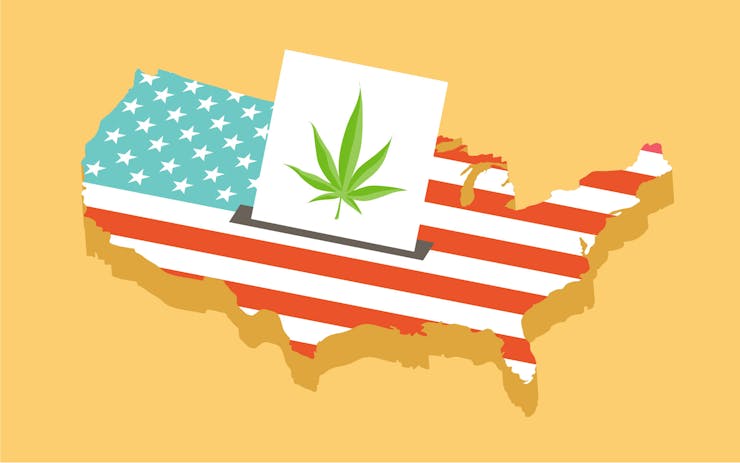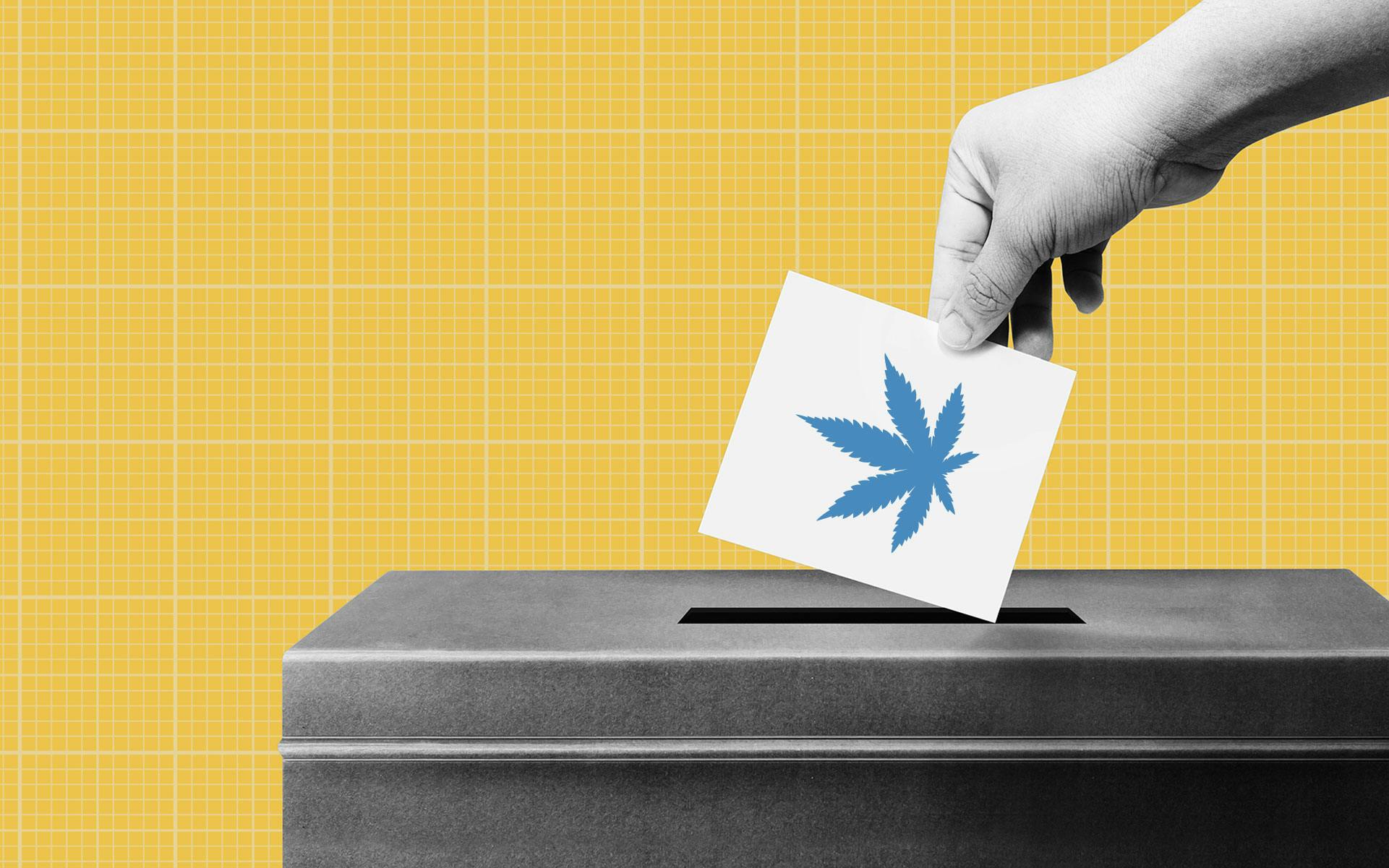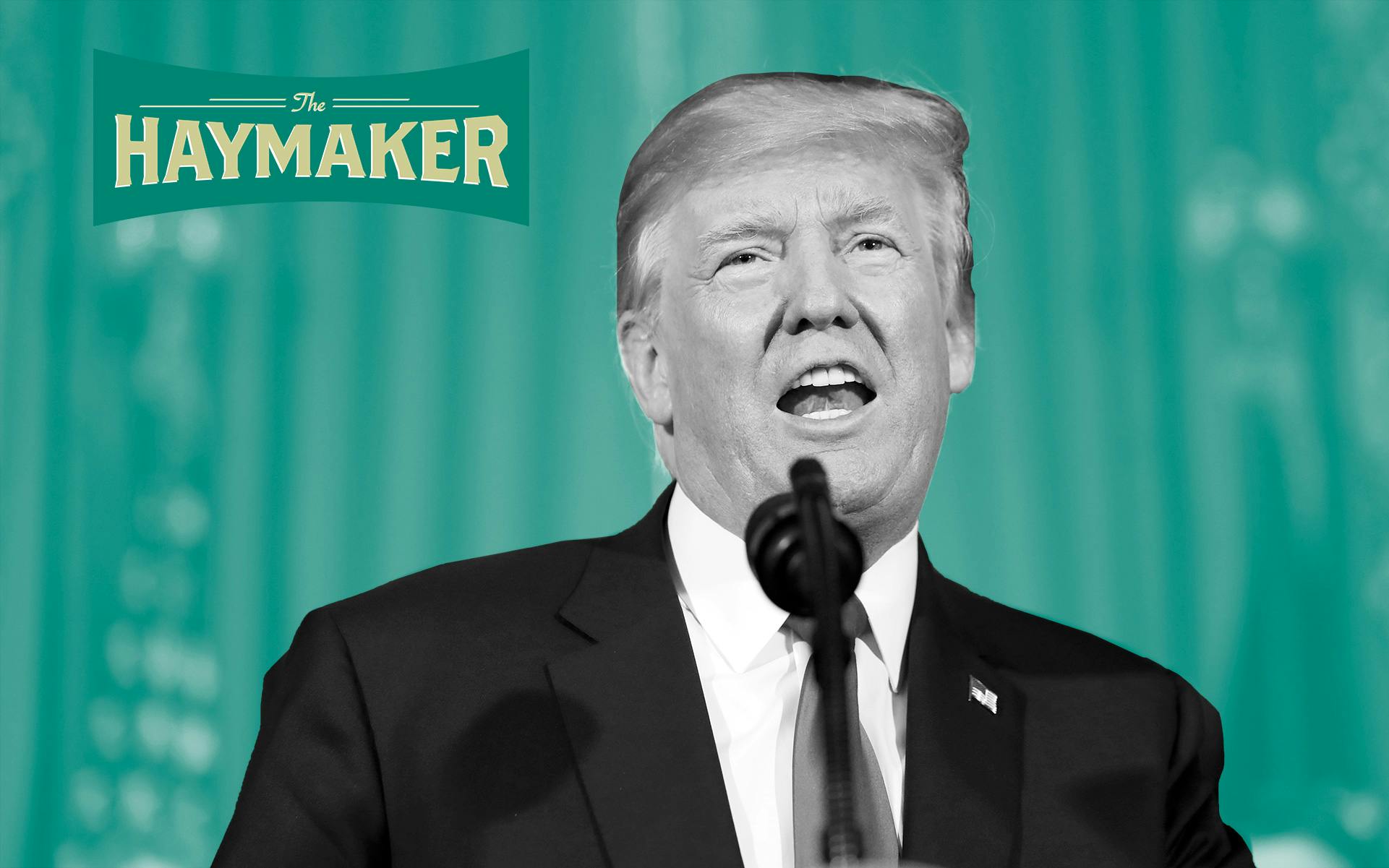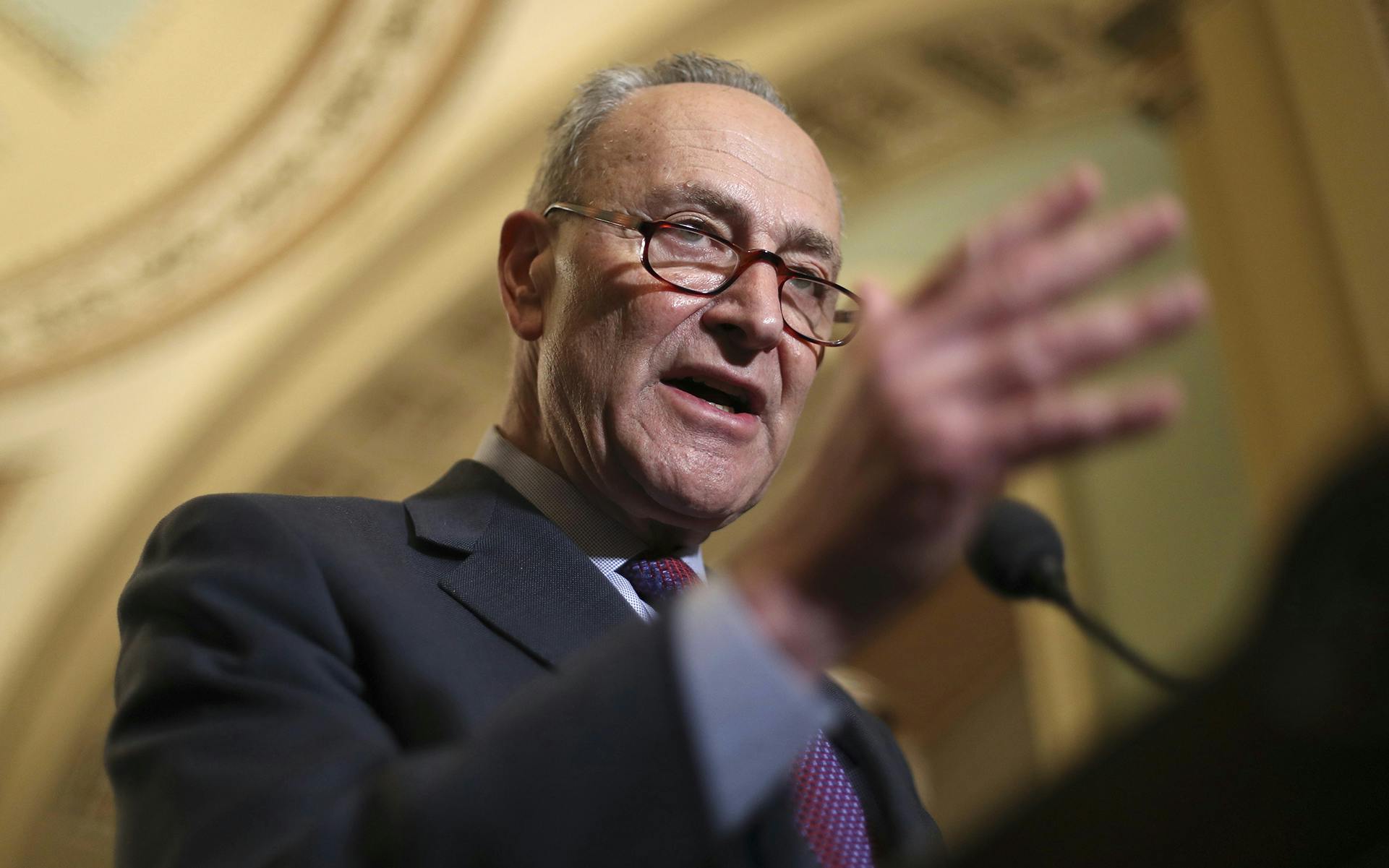This November, five US states will vote on whether to legalize cannabis, either recreationally or for medicinal purposes. So anybody who tells you voting never changed anything can put that in their pipe and smoke it.
In fact, without the initiative process we may never have legalized cannabis anywhere. Just look at New Jersey, where Gov. Phil Murphy was elected in 2017 on a campaign promise to enact cannabis legalization during his first 100 days in office. Three years later, he’s given up on the state legislature and turned the decision over to voters.
Polls show legalization has wide support in New Jersey, and the ballot question in November is very likely to pass.
But then why didn’t Murphy get his way?
Simple—because America’s lawmakers habitually surrender to the wealthy and politically powerful. Which means that while “the people” may widely support legalization (as 66% of Americans do), politicians too often bow to the interests of their campaign donors and other monied interests.
Support for legalization puts them at odds with law enforcement, Big Pharma, and America’s private prison industry. And that’s a trio that—to quote the Wu Tang Clan—ain’t nothing to fuck with.
The good news is that citizens in Arizona, New Jersey, Montana, South Dakota, and Mississippi will vote on cannabis this year, in an election cycle sure to push legalization further than ever before.
Click on Leafly’s voter registration page to check your current status. Registration can be done online in a couple minutes.
For inspiration, here’s a look back at six cannabis elections that most definitely changed the game.
Hunter S. Thompson runs for sheriff (1970)
In 1970, just a year before the publication of his classic Fear and Loathing in Las Vegas, author Hunter S. Thompson ran a “freak power” campaign for Sheriff of Pitkin County, Colorado, on a “free weed” platform.
Shop highly rated dispensaries near you
Showing you dispensaries nearHe nearly won.
This Leafly feature lays out the full incredible story, but rest assured that in classic Gonzo style, Thompson’s campaign combined a serious social critique with outlandish political pranks. Along the way, he shone a bright light on the link between abusive policing and cannabis prohibition, while making a powerful case for legalization.
It’s no coincidence that Colorado remained forever after at the forefront of legalization efforts.
Here’s how Thompson himself addressed the issue during his debate against the incumbent sheriff:
“The current laws were passed in a time of mass hysteria and total ignorance about marijuana. This single law has made felons out of an entire generation. The young people now look upon law enforcement as their bitter enemy. They consider cops to be narrow-minded racists who send out informants to spy on them and set them up for arrests, which can result in fantastic jail sentences…
Approximately 50 percent of the felony cases filed in Pitkin County in the last three years have been possession of marijuana. A hopeless waste.”
California’s first marijuana legalization initiative (1972)

The original Prop 19 in California—not to be confused with a failed 2010 legalization ballot initiative, also called Prop 19—was the first ever statewide vote on cannabis legalization in the United States. Put before voters at a time when national support for legalization remained below 20%, the effort succeeded as a public education effort and movement building exercise, but fell well short on election day, with just one-third of Californians voting in favor.
Had it passed, 1972’s Prop 19 would have ensured “that no person eighteen years or older shall be punished criminally or denied any right or privilege because of planting, cultivating, harvesting, drying, processing, otherwise preparing, transporting, possessing or using marijuana,” without repealing the laws against selling cannabis or undermining any legislation “prohibiting persons under the influence of marijuana from engaging in conduct that endangers others.”
Organized by a coalition of activists, attorneys, academics and public advocates, the California Marijuana Initiative was a truly grassroots effort, which saw thousands of cannabis enthusiasts across the state volunteer to collect more than half a million signatures to put it on the ballot.
The initiative’s ultimate defeat wasn’t surprising, but the fact that a majority of voters in San Francisco County voted yes showed reformers where to focus their energies, while the mere act of voting on legalization forced society at large to view the issue in a new way.
San Francisco’s Proposition W (1978)
Dennis Peron first learned to love cannabis while serving in Vietnam, where he discovered that smoking a joint of local sativa could ease his anxiety and help him process the trauma of a work detail that saw him in charge of stacking body bags during the conflict’s most deadly era.
Upon discharge, Peron stuffed two pounds of the best Thai stick he could find in Vietnam into his Air Force duffle bag and smuggled the contraband home. Soon he was San Francisco’s best-loved weed dealer.
Peron also became active in local politics.
In 1977, he worked tirelessly on the campaign to elect Harvey Milk to the San Francisco Board of Supervisors, which made Milk one of the first openly gay people elected to office in the United States. During that campaign the police targeted Peron for arrest, just one of more than a dozen he would suffer.
While behind bars, Peron drafted the language for a non-binding ballot initiative he would later put before voters.
We, the people of San Francisco, demand that the District Attorney, along with the Chief of Police, cease the arrest and prosecution of individuals involved in the cultivation, transfer, or possession of marijuana.
With help from Harvey Milk and his political machine, Peron collected enough signatures to make the ballot—and then passed the initiative with 56% approval.
San Francisco mayor George Moscone duly instructed the police and district attorneys under his command to stop arresting and prosecuting people for less than an ounce of cannabis. But shortly after that declaration, an ex-police officer turned local politician assassinated both Harvey Milk and Mayor Moscone.
Then-Supervisor Dianne Feinstein became mayor and instructed the police to ignore Proposition W.
That was hardly the end of Dennis Peron and his legalization quest, however—as we’ll see later.
Reagan crushes Carter (1980)

A movie actor who spent the blacklist era secretly informing for the FBI against fellow members of the Screen Actors Guild, Ronald Reagan pivoted to a political career in the 1960s. Reagan combined his Hollywood fame with hardline “law and order” rhetoric to whip up a moral panic against the counterculture of the 1960s, including cannabis culture.
In 1966, despite never having previously held elective office, he won a hard-fought race for governor of California by railing against hippie parties where “the sweet, acrid odor of marijuana” filled the air.By 1980, Reagan had parlayed this schtick into a national profile, and found himselfthe Republican candidate for president against incumbent Jimmy Carter.
Over the previous four years, on Carter’s watch, a late-70s air of permissiveness had pervaded in Washington D.C.
Carter staffers were known to occasionally get high with NORML legalization activists, while decriminalization bills were passed in a number of states without federal opposition. Things reached a high point when Chip Carter (the president’s son) invited Willie Nelson to smoke a “fat Austin torpedo” on the roof of the White House.
Carter himself, in an address to Congress, proclaimed the following:
“Penalties against possession of a drug should not be more damaging to an individual than the use of the drug itself; and where they are, they should be changed. Nowhere is this more clear than in the laws against possession of marijuana in private for personal use… Therefore, I support legislation amending Federal law to eliminate all Federal criminal penalties for the possession of up to one ounce of marijuana.“
Reagan, meanwhile, said things like:
“Leading medical researchers are coming to the conclusion that marijuana, pot, grass, whatever you want to call it, is probably the most dangerous drug in the United States.“
Elected in a landslide, Reagan immediately shut down any talk of decriminalization. He launched an all-out War on Marijuana that targeted growers, smugglers, dealers and even consumers for arrest and imprisonment.
The presidential election of 1980 changed the game in the worst possible way.
California’s Prop 215 kicks off the medical marijuana era (1996)

When the AIDs crisis hit San Francisco in the early 1980s, Dennis Peron (see Proposition W above) found himself squarely at the intersection of cannabis culture and the gay community. Peron was quick to recognize the incredible benefits that smoking a joint brought to those suffering with the disease—including his own partner, Johnathan.
In January 1990, San Francisco police raided the apartment where the couple lived. The cops physically abused Johnathan, who lay sick in bed, and berated him with gay slurs, before hauling Peron into custody for possession with intent to sell. While incarcerated, Peron had a vision for a place where seriously ill people could congregate and smoke cannabis together in peace.
Johnathan died shortly after, but this vision came to life as the San Francisco Cannabis Buyers Club, which (with tacit approval of the local government) began openly distributing cannabis to the seriously ill. Peron, along with Brownie Mary and other local activists, then pushed forward on another voter initiative—this one for the entire state of California.
Together they built a grassroots movement and put Prop 215 on the ballot. The first ever statewide medical marijuana law, the initiative allowed doctors to recommend cannabis to patients for any diagnosis they thought appropriate.
During the campaign, the California Bureau of Narcotics raided the Cannabis Buyers Club and then arrested Peron just a month before the vote. The intention was to “expose” Peron as a criminal. But their full-frontal attack backfired. When the press presented the public with stories of AIDS and cancer patients raided by armed police, public sentiment swung hard towards cannabis.
Passed by a 55-45% margin, Prop 215 represented an absolute sea change in public policy—one that set the stage for the entire global medical marijuana movement.
Washington and Colorado break the adult-use barrier (2012)
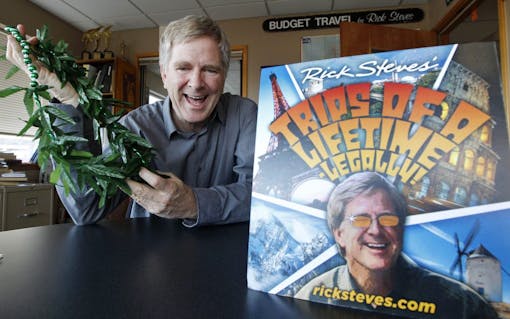
By a wide margin, on the same night, voters in Colorado and Washington legalized cannabis for all adults.
In fact, in both states, legalization earned far more votes than either presidential candidate, a testament to the decades of grassroots activism to educated voters on the fact that cannabis is “safer than alcohol,” while framing legalization as a win for social and racial justice that also creates jobs and brings in tax revenue for schools and public safety.
When Colorado’s first recreational cannabis sale took place on January 1, 2014, the event made headlines around the world. A few weeks later, President Obama addressed the issue directly, promising that the federal government would respect state’s rights when it comes to legalization, while affirming the cannabis movement’s framing by stating that marijuana is “not more dangerous” than booze.
In an instant, the international debate shifted from “if” we legalize to “how” we legalize.
Game changed.
To keep the momentum going, check out Leafly’s official guide to cannabis and the 2020 Election. And visit Cannabis Voter Project to check your registration and learn more about the seven states voting on cannabis this year.
